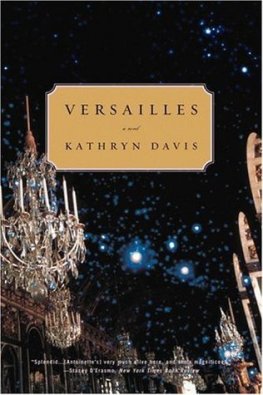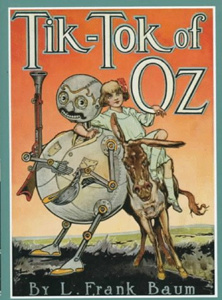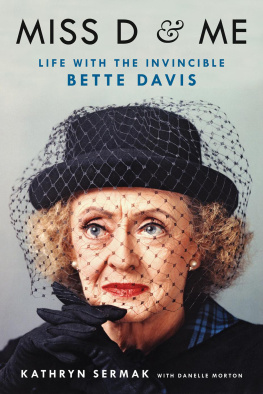For Anne Davis, Peggy Reavey & Rosemary Sedgwick
(my first generation of girls)
IT WAS A SUBURBAN STREET, ONE BLOCK LONG, THE houses made of brick and built to last like the third little pigs. Sycamore trees had been planted at regular intervals along the curb and the curbs themselves sparkled; I think the concrete was mixed with mica in it. I think when it was new the street couldnt help but draw attention to itself, inviting envy.
Miss Vicks lived at the lower end of the street, in number 49. Most of the other houses had families living in them but she was by herself, a woman of about fifty, slim and still attractive, with a red short-haired dachshund. By the time she moved in, the sycamore trees had grown so large they had enormous holes cut through their crowns to make room for all the wires.
She was a real woman; you could tell by the way she didnt have to move her head from side to side to take in sound. Every day she and the dachshund went for three walks, the first early in the morning, the second in the late afternoon, and the third after dinner, when the blue-green lights of the scows, those slow-moving heralds of melancholy, would begin to appear in the night sky. The little dog would sniff around the feet of the sycamores and as it did she would stand there paralyzed as all the Miss Vickses that had ever been layered themselves inside her, one atop the other and increasingly small, forming a great laminate like tree rings around heartwood.
Bedtime, the end of summer. The street was filled with children, many of them the same children shed soon be welcoming into her classroom. School was about to start. Heads up! the boys yelled when a car appeared, interrupting their play; the girls sat making deals on the porch stoops, cigar boxes of trading cards and stickers in their laps. Meanwhile the darkness welled up so gradually the only way anyone could tell night had fallen was the fireflies, prickling like light on water. The parents were inside, keeping an eye on the children but also drinking highballs. Fireflies like falling stars, the tree trunks narrow as the girls waists.
Occasionally something different happened. One girl pasted a diadem of gold star stickers to her forehead and wandered from her stoop to get closer to where one of the boys stood bending slightly forward, his hands on his knees, nervously waiting for another boy to hit the ball. This waiting boy was Eddie, who lived at the opposite end of the street from Miss Vicks, in number 24; the girl was Mary, who lived in the house attached to hers. Sometimes Miss Vicks could hear Mary practicing the piano through the living room wallFr Elise with the same mistake in the same spot, over and over. A fingering problem, simple enough to fix if only the parents would give the girl some lessons.
Headlights appeared; the boys scattered. Mary remained standing at the curb in her plaid shorts and white T-shirt, balanced like a stork on one leg. The car was expensive and silver-gray and driven by the sorcerer Body-without-Soul. Miss Vicks didnt recognize him right away because like every one else she was blinded by the headlights. The headlights turned the lenses of her and Marys spectacles to blazing disks of hammered gold so neither one of them could see the street, the trees, the houses anything at all, really and the next minute the car was gone. It was only after the taillights had disappeared around the corner that Miss Vicks realized she had recognized the license plate: 1511MV, a prime, followed by her initials.
Early in their romance the sorcerer told her he took this for a sign. Miss Vicks was not a superstitious person but like most people she was susceptible to flattery. She and her dog had been walking through the ruined gardens of the Woodard Estate when the sorcerer suddenly appeared on the path in front of them, a tall figure in a finely tailored suit, his shadow cast behind him, his face gold like melted sun. It was as if hed been expecting her; when he circled her wrist with his fingers to draw her close to ask her name, she felt the life inside her leap up from everywhere, shocking, like a hatch of mayflies. He said hed been hunting but she didnt see a gun anywhere. The animal kingdom, he said, disparagingly, giving her little dog a nudge with the toe of his pointed shoe. He was a Woodard it made sense that he would be there even after the place had fallen into desuetude.
Now her dog was raising his hackles. Miss Vicks could feel him tugging on the leash, bravely holding the soft red flags of his ears aloft and out to either side like banderillas.
Has anyone seen Eddie? Mary asked.
He disappeared, Roy Duffy told her, but he was joking.
Everyone knew how Eddie was here one minute, gone the next. He was a small, jumpy boy; he moved so fast it was as if he got where he was headed before anyone ever noticed hed left where he started out. Besides, they were all disappearing into their houses it was only the beginning. The game was over; the next day school started. When the crest of one wave of light met the trough of another the result was blackness.
Tonight, as every night, from inside number 24 came the sound of Eddies parents playing canasta. Ill meld you! said his mother, raucous with the joy of competition. The two of them were sitting on either side of the card table they set up in the living room each night after dinner, but you couldnt see them, only hear their voices, the front bow window filled with a lush ivy plant in an Italian cachepot.
Miss Vicks watched Mary start down the street.
Goodnight, Miss Vicks, Mary said.
See you tomorrow, Mary, she replied.
In the brick houses the clocks kept ticking away the time, chipping off pieces of it, some big ones piling thick and heavy under the brass weights of the grandfather clock in Eddies parents hallway, others so small and fast even the round watchful eyes of the cat clock in Marys parents kitchen couldnt track their flight. The crickets were rubbing their hind legs together, unrolling that endless band of sound that when combined with the sound of the sycamore trees tossing their heads in the heat-thickened breeze could cause even a girl as unsentimental as Mary to feel like shed just left something behind on the porch stoop she couldnt bear to live without.
Miss Vicks waited on the grass verge in front of number 24 for her dog to complete his business. He always deposited it in the same place between the curb and the sidewalk; she would scoop it into a bag and then it would get carried into the heavens by a scow. The street was empty, the materialization of the silver-gray car having driven everyone inside.
Thinking of the sorcerer, Miss Vicks became aroused. He had his way of doing things. When he drove he liked to rest his one hand lightly on the wheel and leave the other free to stroke her between the legs. His fingernails were perfect ovals like flower petals, and he had eyes so black and so deep-set sometimes she thought they werent eyes but holes. Even when they seemed to be looking at the road she knew what he was seeing was himself.
Hed been with a woman he left to be with her, and another woman before that, and before that many other women Miss Vicks had heard the stories. Once she saw him escorting a blonde woman into a restaurant, his hand at the small of the womans back, and to her shame she realized her jealousy was nothing compared with her vicarious sense of excitement at the thought of his touch. He wasnt promiscuous though, or so he claimed the one time she confronted him. He was just having difficulty finding the right woman.
Im not like you, hed told her, as if that were justification enough. They were lying on her bed with all the lights on, the way he liked it, and he was slipping one hand under her expensive Italian camisole while guiding her lips to meet his with the other. Of course she knew he was right, though probably not the way he meant it. The sorcerer could make things appear or he could make them vanish; he could make them turn into other things or he could make them vibrate at unprecedented frequencies, the explanation for his great success in bed. It was only











